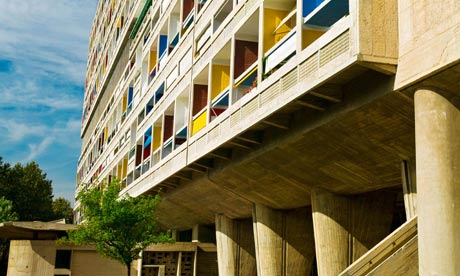
The seven years of Peter Stamm's title are part of its chronology but also carry biblical resonances that surface in the text – the seven years Jacob worked to earn the right to marry Rachel and the two periods, of plenty and famine, in Pharaoh's dream. Alexander, a young architect based in Munich, lives through the turbulent period after the reunification of Germany, through success, bankruptcy and tentative recovery. Outside this business perspective it would be hard to be sure which were the fat years and which the lean.
In Genesis, Jacob wanted Rachel but was tricked into marrying her sister Leah, so that he had to work for another seven years to get what he wanted. Alexander's emotional life is less dramatic but more divided. While he's still a student he becomes involved with the beautiful Sonia, an architecture student at least as talented as he is. They marry and set up a firm together.
There's another woman, though, who has nothing to offer except her devotion, either a doglike instinct or something comparable to religious conviction, requiring no corroboration of its truth. This is Ivona, a Polish Catholic who isn't physically attractive, interesting or emotionally expressive. She makes no demands of him, which is another way of saying that her demands are total. She will never have enough of him. There is nothing else in her life.
Alexander and Sonia visit a mismatched pair of buildings in or near Marseille just when they're getting involved: Le Corbusier's Cité Radieuse and the Château d'If. It's hardly surprising in a book narrated by an architect that the buildings should have such strong symbolic associations. Sonia is the one who admires Le Corbusier, and though Alexander can recognise the quality of the building when he's inside it, he's doubtful about the underlying assumptions – "machine for living, I mean, the very expression. You might as well say battery farm." The Château d'If, on the other hand, though built for a single oppressive purpose, is unexpectedly soothing. "I tried to imagine what it would be like to be imprisoned there. Oddly, I had a sensation of shelter and protection rather than confinement."
Ivona's name and nationality were presumably chosen by Stamm as a nod to Witold Gombrowicz. Her abject passivity is not so much a Polish characteristic as a Polish literary reference. In Gombrowicz's absurdist play Princess Ivona, a prince marries an almost mute, unmemorable girl and finds that she excites aggression and shame in others. Stamm's Ivona too has little to say for herself, and nothing revealing. She and Alexander spend a single night together, and Ivona doesn't speak until morning. Then she asks if he'd like milk in his coffee.
Sonia's present to Alexander, when they spent their first Christmas together, was a cardboard model of a house, very carefully done. In front of the house stood two little human figures, a man and a woman. She had even done sketches and rough designs.
As a fellow student of theirs had once remarked, though, you can plan a building but you can't plan a life. There are times early on in Seven Years when it seems more like Sonia's model than is good for it, or like one of those architectural drawings done from a diagonal perspective so that every element becomes clear, an axonometric. Even so it has its own deceptiveness. It hardly seems to have a plot, until one wriggles into life after the halfway point.
The book is cool and immensely accomplished, told retrospectively in a way that seems to flatten suspense (we know, for instance, that the marriage survives one bad patch, and that Alexander and Sonia have a young daughter) while bringing out the half-tones that shadow even the most apparently clearcut decisions. Alexander too is passive in his own way, needing a prompt from a third party to make a play for Sonia, and only talking to Ivona as a result of a sort of dare.
Sonia chose Alexander over a rival because he loved her less, leaving her more control. The two of them look at themselves in the bathroom mirror of Alexander's flat ("two beautiful people in a beautiful apartment, said Sonia, and laughed"), and when they kiss he is more excited by the idea of the couple in the mirror kissing than by the kiss itself. In a novel of the 1950s, this moment of bad faith would be the key to his character and his compromises, but that seems a naively doctrinaire judgment now. If it wasn't for bad faith, he wouldn't have any faith at all, while Ivona has her religion to console her, whether or not her god has the power to keep away.

